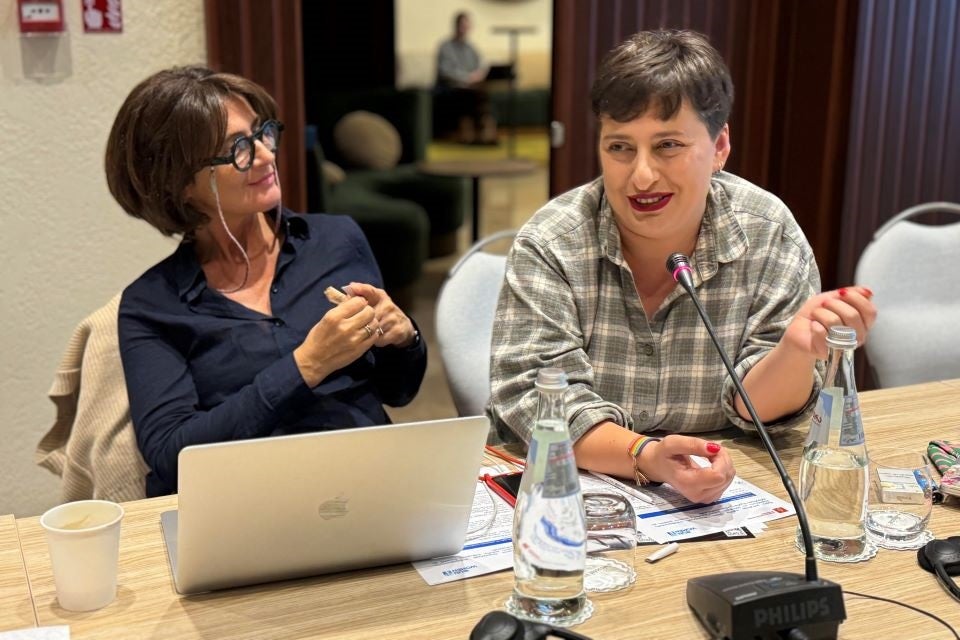Violence against women in politics and elections comes to the focus of the Georgian media
Date:

Women involved in politics and public life frequently experience violence, harassment and gender-based disinformation. This harsh reality is further aggravated by traditional or social media by reinforcing stereotypes about women politicians through gender-insensitive coverage, creating barriers not only for them but also for women who might be willing to take an active part in political life in the future.
To achieve meaningful changes, it is important for the currently active or future journalists, as well as the university professors and teachers of journalism, to get a deeper understanding of the essence and relevance of this issue - and to acknowledge the role they can play towards promoting women’s participation in politics.
According to the 2022 UN Women research study ‘Violence against Women in Politics in Georgia’, 54 per cent of women politicians in the country have experienced some form of violence during their tenure as an appointed official or during their campaign work. Violence against women in politics becomes particularly prevalent during the run-up to an election, which is why UN Women, in collaboration with the Georgian Charter of Journalistic Ethics, planned awareness-raising meetings for the media right before the October 2024 parliamentary elections.
With the invitation of UN Women, international expert Lolita Čigāne, a former journalist and a human rights activist who is a three-term member of the Latvian Saeima, visited Georgia from 17 to 19 October. Within the framework of her visit, the expert met with up to 15 representatives of the Georgian media - including producers of news media, editors, anchors and journalists - and discussed the definition, forms and specific nature of the coverage of violence against women in politics and during elections. She not only shared best international practices among the participants but, based on her experience, also spoke about how valuable it is to express support and solidarity for women in politics, highlighting the role that the media plays in this process, as well as in the adherence to ethical standards and gender-sensitive coverage.
Khatia Ghoghoberidze, a member of the Council of the Georgian Charter of Journalistic Ethics and Chairperson of Media April, noted after the meeting: “Unfortunately, the stereotype that a job in politics is not for women still persists. Nevertheless, it is well known that the election campaigns of political parties and election day itself heavily rely upon women. Despite this, the absolute majority of politicians are men. During the meeting, we discussed the challenges faced by women before and after the elections, and what the media can do to tackle this. I think such discussions will strengthen the responsible and ethical media on the one hand, and empower women on the other.”
Lolita Čigāne also held a workshop with professors and teachers of journalism from the institutions of higher education in Tbilisi and other regions of Georgia. Additionally, the expert spoke with about 50 students from the faculty of journalism and the faculty of public administration at Ivane Javakhishvili Tbilisi State University and discussed the issues of violence against women in politics with them.
Violence against women in politics and elections is becoming an increasingly important issue globally. International experience proves that violence significantly hinders women’s participation in politics and decision-making, which has a negative impact on democratic development in general. Therefore, UN Women will continue working in this direction in the future.
The meetings were held within the framework of the UN Women projects “Support to Georgia’s 2024 Parliamentary Elections”, which is generously funded by the Danish Ministry of Foreign Affairs, and “Women’s Increased Leadership for Democracy in Georgia”, supported by the Swiss Agency for Development and Cooperation.